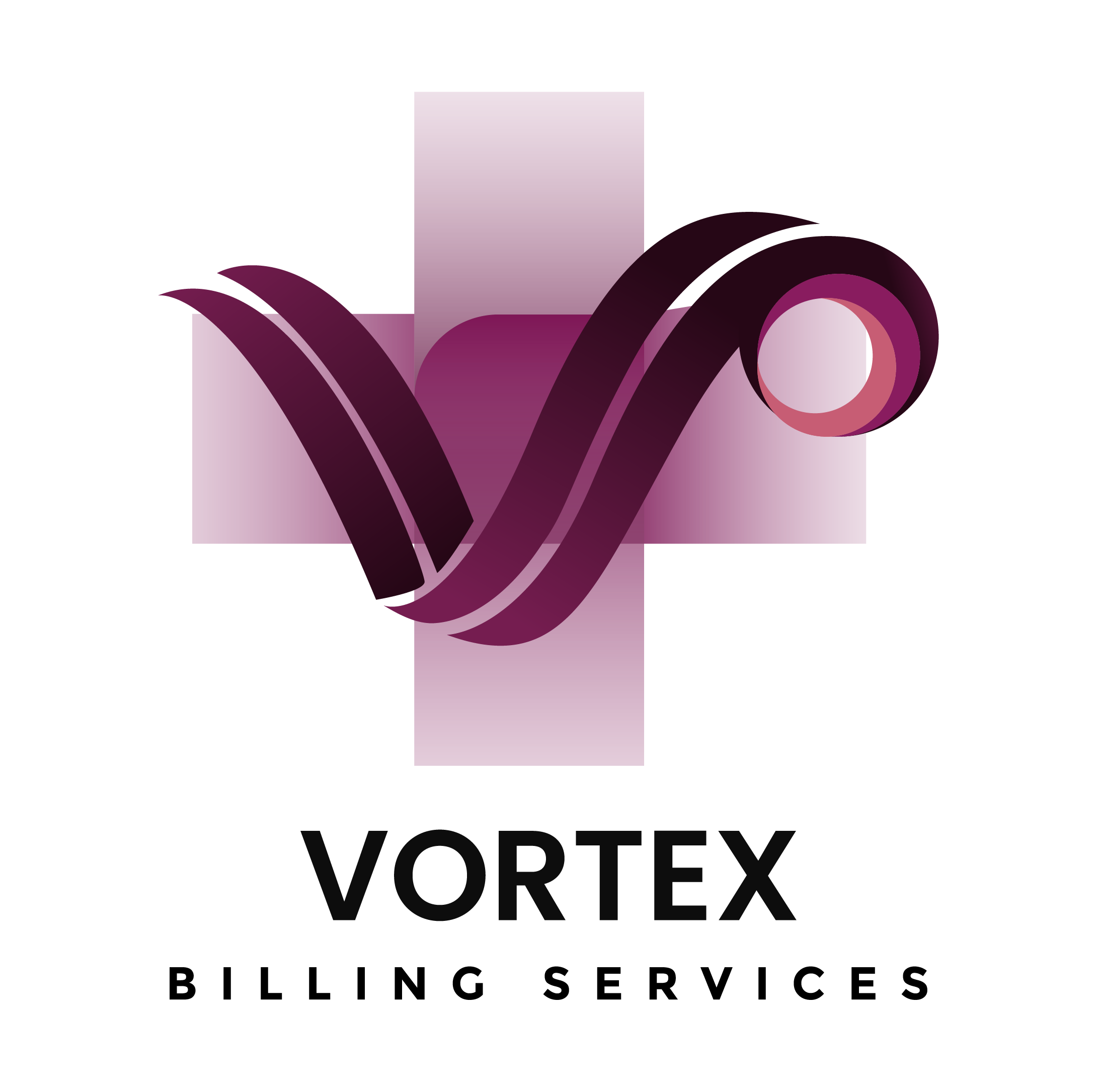Choosing the Right RCM Partner: A Strategic Imperative for Healthcare Practices
In today’s competitive healthcare environment, selecting the right RCM partner can either streamline your operations or become a costly mistake. So, how do you choose the right RCM partner for your medical practice? The answer lies in understanding your practice’s unique needs, assessing the capabilities and transparency of potential vendors, and ensuring they align with your compliance, technology, and cost-efficiency goals. The right RCM partner can significantly improve your collections, reduce administrative burdens, and keep your practice financially healthy and legally compliant.
Understanding What an RCM Partner Is
The Role of an RCM Partner in Healthcare
A Revenue Cycle Management (RCM) partner handles the end-to-end process of managing a healthcare provider’s revenue—from patient intake and insurance verification to billing, coding, claims submission, denial management, and collections. Simply put, an RCM partner is the engine that keeps the financial side of your practice running smoothly.
Medical practices often struggle with navigating the complex billing codes, insurance claim protocols, and constantly shifting compliance rules. Here’s where an RCM partner comes in. They are responsible not only for getting you paid faster but also for minimizing errors and rejections that could stall cash flow. Think of them as your behind-the-scenes team, turning every patient interaction into a successful payment cycle.
RCM partners typically offer services such as:
- Patient scheduling and registration
- Insurance verification and eligibility checks
- Medical coding and charge capture
- Claims submission and follow-up
- Denial management
- Payment posting and reconciliation
- Patient collections
If any of these steps break down, revenue leakage becomes inevitable. That’s why choosing a partner with proven expertise, robust systems, and a track record of accuracy is critical.
Components of Revenue Cycle Management
To fully understand what you’re outsourcing, it’s essential to grasp the core components of RCM. The revenue cycle isn’t just billing—it’s an interconnected process. Here’s a breakdown:
- Pre-Claim Tasks
- Insurance eligibility verification
- Pre-authorizations and referrals
- Patient demographic entry
- Claim Generation and Submission
- Accurate medical coding (ICD-10, CPT)
- Clean claim creation and scrubbing
- Timely submission to payers
- Claims Follow-Up and Denial Management
- Monitoring unpaid claims
- Appealing denials
- Resubmitting corrected claims
- Patient Billing and Collections
- Sending statements to patients
- Setting up payment plans
- Collecting co-pays and deductibles
- Reporting and Analytics
- Key performance metrics
- Collection rates
- Denial trends
Each of these stages requires precision, experience, and continuous monitoring. A strong RCM partner will offer full visibility into these processes and provide support that allows you to focus more on patient care and less on paperwork.
Why Choosing the Right RCM Partner Matters
Financial Impact of Poor RCM Management
Many medical practices in the USA lose thousands—even millions—each year due to poor RCM systems. From uncollected patient balances to delayed insurance payments and coding errors, revenue leakage adds up fast. A poor RCM partner can exacerbate this problem rather than solve it.
One common issue is a lack of follow-up on unpaid claims. Insurance companies often deny claims due to missing information or coding discrepancies. If your billing team or outsourced partner isn’t proactively chasing those denials, you’re leaving money on the table. Similarly, failure to verify insurance eligibility at the front end can result in claim rejections that delay payments for months.
Even worse, poor RCM management can impact your cash flow and limit your ability to grow or reinvest in your practice. You might not notice the problem until you start struggling to pay vendors or staff. That’s why it’s not just about hiring any RCM company—it’s about finding the right RCM partner.
Legal and Compliance Risks
Beyond the financial aspect, compliance is a huge factor in healthcare RCM. The wrong RCM partner could inadvertently expose your practice to audits, fines, or even litigation. How? Through poor coding practices, HIPAA violations, or failure to adhere to CMS billing guidelines.
For example:
- Submitting incorrect codes may trigger audits by Medicare or private insurers.
- Not securing patient data could result in HIPAA violations and massive fines.
- Improper billing for non-covered services could lead to fraud allegations.
In the USA, healthcare regulations are incredibly complex and always evolving. You need an RCM partner who not only knows the rules but stays ahead of them. This includes ongoing training, regular audits, and real-time compliance updates. A trustworthy RCM partner will have dedicated compliance officers, documented procedures, and a transparent system to keep your practice in the clear.
Key Qualities to Look for in an RCM Partner
Industry Experience and Specialization
Not all RCM providers are created equal. Some specialize in hospitals, others in small clinics or niche specialties. When choosing an RCM partner, look for one that has a proven track record with your practice size and specialty.
For example, a cardiology clinic has vastly different billing needs compared to a behavioral health provider. If your potential RCM partner doesn’t understand your specialty’s nuances, they could mishandle codes, leading to claim rejections and lost revenue.
Questions to ask:
- How long have they been in business?
- Do they have clients in your specialty?
- Can they provide specialty-specific performance metrics?
Also, don’t just go by what’s on their website. Ask for client references in your field and dig deep. A seasoned RCM partner should be able to speak your language and anticipate your needs before they become issues.
Compliance with HIPAA and Other Regulations
Your RCM partner must treat patient data with the same care you do. HIPAA compliance isn’t optional—it’s a legal requirement. But HIPAA is just the tip of the iceberg. Your RCM provider should also follow:
- CMS billing guidelines
- Local state laws and payer-specific policies
- Fraud, waste, and abuse prevention practices
- A designated compliance officer
- Regular internal audits
- Employee training programs
- Up-to-date Business Associate Agreements (BAAs)
Remember, if your partner violates HIPAA or other laws, your practice is still liable. Choosing a partner with strong compliance safeguards protects both your patients and your reputation.
Integration with EHR and Practice Management Software
Lastly, your RCM partner should fit into your existing workflow without causing headaches. Seamless integration with your current EHR and practice management system is a must. Clunky, outdated platforms can disrupt your staff, slow down productivity, and cause costly delays.
A great RCM partner will:
- Be compatible with your current systems
- Offer training for your staff
- Provide dedicated onboarding support
- Ensure real-time syncing of patient data and billing information
Don’t settle for workarounds or manual uploads. In the digital age, efficient integration is a key differentiator.
Evaluating Technology and Innovation
Cloud-Based and AI-Driven Solutions
The best RCM partners aren’t just good at billing—they’re tech innovators. Look for partners who use AI and cloud-based solutions to speed up claims processing, reduce errors, and predict payment outcomes. Features to prioritize:
- Intelligent coding assistance
- Automated claim scrubbing
- Predictive analytics for collections
Outdated systems can bottleneck your practice. Tech-forward partners give you a competitive edge.
Transparency and Communication
Clear Reporting Structures
Transparency isn’t just a buzzword—it’s a vital trait of a reliable RCM partner. Without clear reporting, your medical practice is flying blind. A competent RCM partner should provide easy-to-understand reports that clearly show where your money is, how long it’s taking to collect, and what areas need improvement.
Here’s what to expect from a transparent reporting structure:
- Monthly and Weekly Financial Reports: Including collections, AR aging, and denial rates.
- Custom Dashboards: Real-time visibility into key performance indicators (KPIs).
- Error and Denial Logs: Breakdown of claim issues and resolutions.
A lack of visibility could mean errors are going unnoticed for months—draining revenue and creating long-term problems. You want a partner who empowers your staff with data, not someone who keeps you in the dark. If your current RCM provider doesn’t have robust reporting tools or avoids sharing metrics, that’s a red flag.
Additionally, the reports should be user-friendly. A wall of numbers with no explanations is useless. A good RCM partner will not only give you the data but will also walk you through it, explain what it means, and suggest actionable improvements.
Support Availability and Responsiveness
Imagine this: You notice a sudden drop in collections. You email your billing partner. No response. You call. Voicemail. You wait. Days pass. That’s unacceptable.
Responsiveness is non-negotiable when selecting an RCM partner. Your practice needs a dedicated account manager and a responsive support team that can handle urgent billing issues quickly. Here are some key points to evaluate:
- 24/7 Availability: Especially if your clinic operates extended hours or across time zones.
- Multiple Support Channels: Phone, email, chat, and dedicated portals.
- Guaranteed Response Times: Set expectations on how soon they will get back to you.
Top-tier partners will assign you a specific account rep, ensure regular check-ins, and provide a consistent communication flow. The goal is a collaborative relationship—not a vendor who disappears after the contract is signed.
Cost vs Value: Understanding Pricing Models
Fixed Fees vs Percentage-Based Billing
One of the most confusing elements of outsourcing RCM is the pricing. While some providers charge a flat monthly fee, most use a percentage-based model—typically taking 4% to 9% of collected revenue. Each model has its pros and cons depending on your practice size and complexity.
Fixed-Fee Model:
- Pros: Predictable costs, good for high-volume practices.
- Cons: May lead to low motivation from the partner if revenue drops.
Percentage-Based Model:
- Pros: The provider only makes money when you do, so they’re incentivized to maximize collections.
- Cons: Costs can rise with revenue, and there’s potential for inflated billing practices.
Always ask for a detailed breakdown of what’s included in their fee:
- Are patient statements extra?
- Do they charge separately for denial management or coding audits?
- What happens during low-collection months?
The cheapest RCM partner isn’t always the best. Look beyond the numbers. Is their service fast? Accurate? Compliant? Transparent? In RCM, you get what you pay for.
Hidden Fees and Contracts
Many providers lock practices into long-term contracts with limited exit clauses. Others surprise you with extra charges for tasks you assumed were included.
Red flags to watch for:
- Long-term contracts without a trial period.
- Vague service descriptions in the contract.
- “Per-transaction” fees or unlisted surcharges.
Before signing anything, have a legal professional review the contract. The right RCM partner will be upfront about their pricing, explain every clause, and not pressure you into a multi-year commitment without proven results.
Customization and Scalability
Support for Growing Practices
Your practice isn’t static—it grows, evolves, and adapts. Your RCM partner should too. Whether you’re adding new providers, opening a second location, or expanding services, your RCM provider must scale with you without missing a beat.
Scalable RCM partners offer:
- Easy addition of new providers and specialties.
- Seamless location and multi-entity billing support.
- Flexible pricing models that grow with your revenue.
Before onboarding, ask:
- Can their infrastructure handle 10x your current claim volume?
- Do they offer support for multi-site operations?
- Are there additional fees for scaling?
Choosing an RCM provider that can’t grow with you means going through the painful process of switching partners down the line—something you want to avoid.
Specialty-Specific Customizations
Every medical specialty has unique billing codes, modifier rules, and payer policies. Generic RCM solutions rarely work well for specialized practices. Whether you’re in dermatology, urology, cardiology, or behavioral health, your RCM partner should be fluent in your billing language.
Look for:
- Specialty-trained coders on staff.
- Knowledge of specialty-specific denial reasons.
- Custom reporting metrics aligned with your practice goals.
Generic billing providers may miss the nuances of your procedures or improperly code visits—leading to lost revenue and compliance risks. A specialty-focused RCM partner ensures billing accuracy and optimal reimbursement from day one.
Client Testimonials and Case Studies
Assessing Client Retention and Satisfaction
Before signing on the dotted line, get the inside scoop from those already working with your potential RCM partner. Client testimonials, case studies, and references are essential for gauging real-world performance.
High client retention rates often indicate satisfied clients. Ask the RCM provider:
- What’s your client retention rate over the past 5 years?
- Can I speak to a few current clients in my specialty?
- Do you have case studies showing performance improvements?
Positive reviews should highlight improvements in collections, reduction in denials, better workflow efficiency, and strong customer service. Be wary of vague testimonials like “They’re great!” with no specifics.
Strong partners will proudly showcase success stories—and connect you with real clients willing to share candid feedback.
Red Flags to Watch for in Testimonials
Sometimes, what’s not said in a testimonial tells you everything. Watch for these red flags:
- Overly generic praise without details.
- Repetitive reviews across platforms (indicating fake reviews).
- No mention of performance metrics or real ROI.
Don’t rely solely on website testimonials. Look at third-party review sites like G2, Capterra, or Google Reviews. If the RCM partner hesitates to provide references or gets defensive about past issues, walk away. Transparency and openness are the hallmarks of a partner worth trusting.
Regulatory Compliance and Accuracy
Regular Audits and Quality Checks
In the tightly regulated healthcare industry, compliance is not just a box to check—it’s a core requirement. A professional RCM partner in the USA must conduct routine audits and quality checks to ensure everything from claim accuracy to patient data security is in line with legal standards.
Routine audits identify:
- Coding errors or inconsistencies
- Missed billing opportunities
- Payer-specific issues
- HIPAA and HITECH compliance violations
A strong RCM partner will offer:
- Internal compliance officers overseeing billing and coding processes
- Randomized chart audits for accuracy
- Monthly performance reviews showing metrics like denial rates and clean claim rates
The audit process must be proactive, not reactive. Rather than waiting for issues to arise, your RCM partner should be preventing problems before they hit your bottom line or attract regulatory attention.
Don’t hesitate to ask for documentation. Do they share audit results with your team? Are corrections acted upon immediately? Can they provide you with a history of error rates and how they’ve improved? These questions separate the real professionals from those just going through the motions.
Certifications and Accreditations
Verifying credentials is one of the simplest yet most overlooked steps in choosing an RCM partner. Recognized certifications are more than badges—they’re proof that your partner follows industry best practices.
Look for:
- AHIMA or AAPC certifications (for coding staff)
- HIPAA compliance training certificates
- SOC 2 Type II compliance (ensures data security and system integrity)
- HITECH Act adherence
- CAQH CORE certification (demonstrates eligibility verification capabilities)
Accredited RCM partners stay current with federal and state regulations, conduct ongoing staff training, and uphold data security standards. If a provider hesitates to share certifications or claims they’re “in process,” consider that a red flag.
Onboarding and Transition Process
Data Migration and System Integration
Switching RCM providers can feel overwhelming. Data migration and system integration are often the biggest concerns practices face when considering a change. The right RCM partner will provide a seamless transition plan that minimizes downtime and protects your sensitive data.
Here’s what an ideal onboarding process includes:
- Pre-migration planning: Identifying data sources, key software integrations, and potential challenges.
- Secure data transfer protocols: HIPAA-compliant, encrypted methods for moving sensitive patient records.
- System compatibility assessments: Ensuring your EHR and PM software align with their tools.
- Test runs and soft launches: Catching bugs before full implementation.
Onboarding should not feel rushed or disorganized. A structured timeline, dedicated migration specialists, and transparency at every step are essential. Ask potential partners:
- How long will onboarding take?
- What’s their downtime mitigation strategy?
- Who will train your staff?
If they can’t walk you through a proven transition process with actual client examples, move on.
Staff Training and Support
Even the best billing systems won’t succeed without human support. Your internal team needs proper training on new workflows, portals, communication channels, and compliance procedures. A great RCM partner will not leave you to “figure it out” on your own.
They should offer:
- Initial onboarding webinars or onsite training
- Documentation and user manuals
- Ongoing refresher courses
- Designated support representatives
Also, confirm that they have a support plan post-launch. Can your staff call for help during business hours? Do they provide after-hours assistance for urgent issues? Training should be viewed as a continuous process, not a one-time event.
Red Flags When Choosing an RCM Partner
Lack of Transparency or Experience
Many providers make bold claims but offer little substance when asked for proof. If an RCM partner refuses to share references, avoids performance metrics, or gives vague answers, consider that a warning sign.
Signs of inexperience or poor service include:
- No published case studies
- Inability to explain billing KPIs
- Generic sales pitches with no specialization
Experienced partners will tailor their pitch to your practice’s size, specialty, and needs—and back it up with data.
Ask tough questions:
- How many clients have you served in my field?
- What was your client retention rate last year?
- Can you walk me through a sample client’s results?
Trust is earned through transparency. If the provider gets defensive or evasive, keep looking.
Overpromising Without Proof
It’s easy to be wooed by promises like “We’ll increase your revenue by 30%” or “Zero denials guaranteed.” But if these claims lack supporting data or case studies, be skeptical.
Common overpromises to watch for:
- Unrealistic collection timeframes
- Guaranteed claim approvals
- “Set-it-and-forget-it” billing approaches
A legitimate RCM partner will give conservative estimates backed by actual results and explain the steps they’ll take to achieve them. Anything that sounds too good to be true probably is.
Questions to Ask Before Signing a Contract
Service-Level Agreements (SLAs)
Before you commit to an RCM partner, make sure expectations are clearly documented in a formal Service-Level Agreement (SLA). This agreement is your protection—it holds both parties accountable and outlines exactly what you’re paying for.
Key elements of an SLA:
- Turnaround time for claims submission
- Denial resolution timelines
- Customer service response times
- Data backup and security protocols
- Billing cycle timelines
SLAs should include penalties for missed metrics or delayed deliverables. For instance, if they don’t follow up on denied claims within five business days, there should be a corrective clause. It’s your financial health on the line—don’t leave it to chance.
Performance Metrics and KPIs
Numbers don’t lie. Any RCM provider worth your time should regularly report key performance metrics and be able to explain what they mean. These KPIs allow you to measure success and identify problem areas.
Top metrics to track:
- Days in AR (Aim for less than 35 days)
- Clean Claim Rate (Over 95% is ideal)
- Denial Rate (Should be under 5%)
- Patient Collection Rate
- First Pass Resolution Rate
Ask for monthly or quarterly performance dashboards. If a provider doesn’t track KPIs or share them consistently, your revenue cycle could be slipping through the cracks without you knowing.
Final Checklist for Selecting the Right RCM Partner
10-Point Decision-Making Guide
Before making your final decision, run through this checklist:
- ✅ Do they have proven experience in your specialty?
- ✅ Are they HIPAA-compliant with documented security protocols?
- ✅ Can they integrate seamlessly with your current systems?
- ✅ Do they offer transparent, understandable pricing?
- ✅ Are client references and case studies available?
- ✅ Do they provide detailed reports and performance metrics?
- ✅ Is the onboarding process clearly defined?
- ✅ Do they conduct regular audits and compliance checks?
- ✅ Is customer support responsive and easy to reach?
- ✅ Are they scalable and ready to grow with your practice?
Checking every box doesn’t guarantee success—but skipping just one could lead to months or years of frustration. Choosing the right RCM partner is one of the most critical business decisions you’ll make. Treat it like hiring a key team member—because that’s exactly what they’ll be.
Conclusion
Choosing the right RCM partner for your medical practice is no longer a luxury—it’s a strategic necessity. With the increasing complexity of medical billing, changing healthcare regulations, and patient expectations for transparency, practices across the USA need more than just a billing vendor. They need a true partner—one that brings technology, compliance, cost-efficiency, and clear communication to the table.
Throughout this guide, we’ve explored the critical attributes that define a high-quality RCM partner: industry experience, tech integration, regulatory compliance, transparency, and customized support. Whether you’re a small family clinic or a growing multi-specialty group, the right partner can make all the difference in maximizing collections, reducing denials, and letting you focus more on patient care than paperwork.
So don’t rush the decision. Vet potential partners thoroughly. Ask the tough questions. Review contracts line by line. And always keep your patients and your practice’s long-term success at the center of every decision. When you find the right RCM partner, you’ll know—because your revenue cycle will run smoother, your staff will breathe easier, and your bottom line will thank you.



